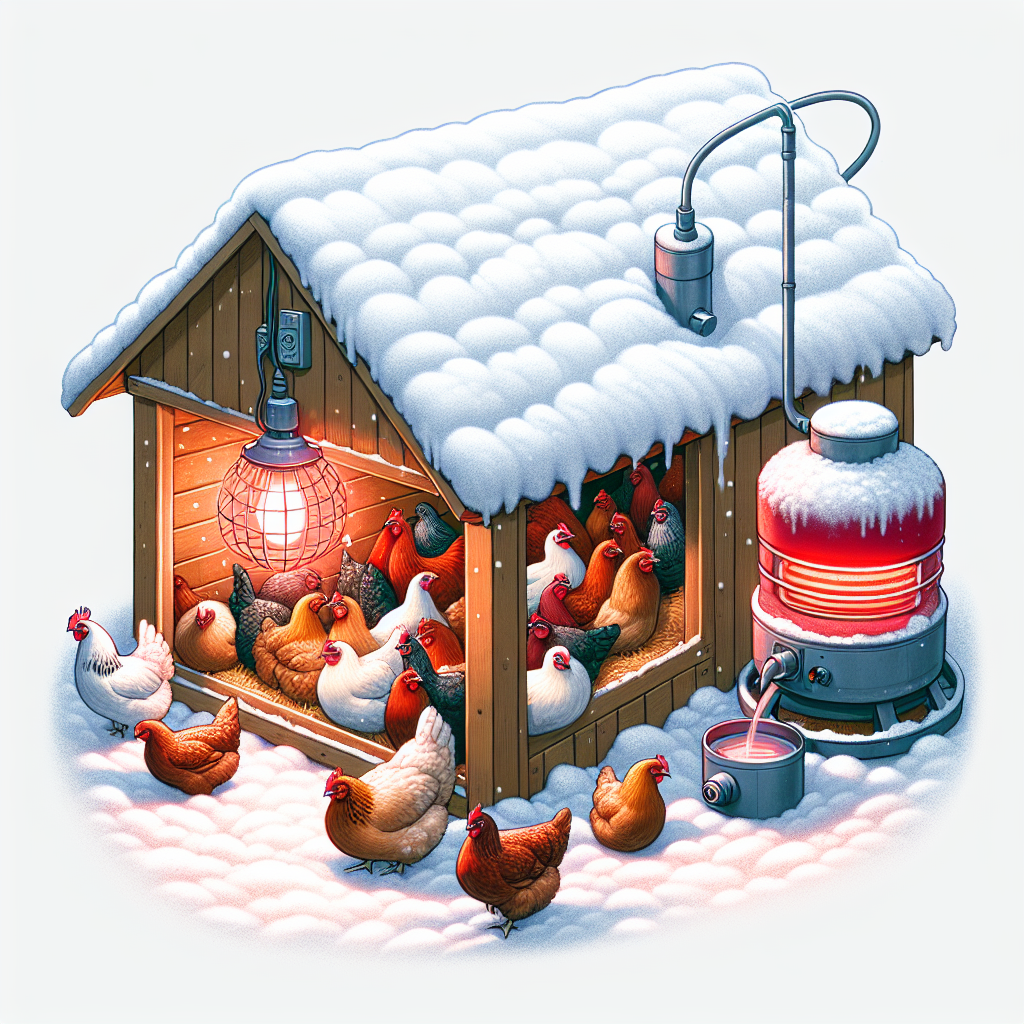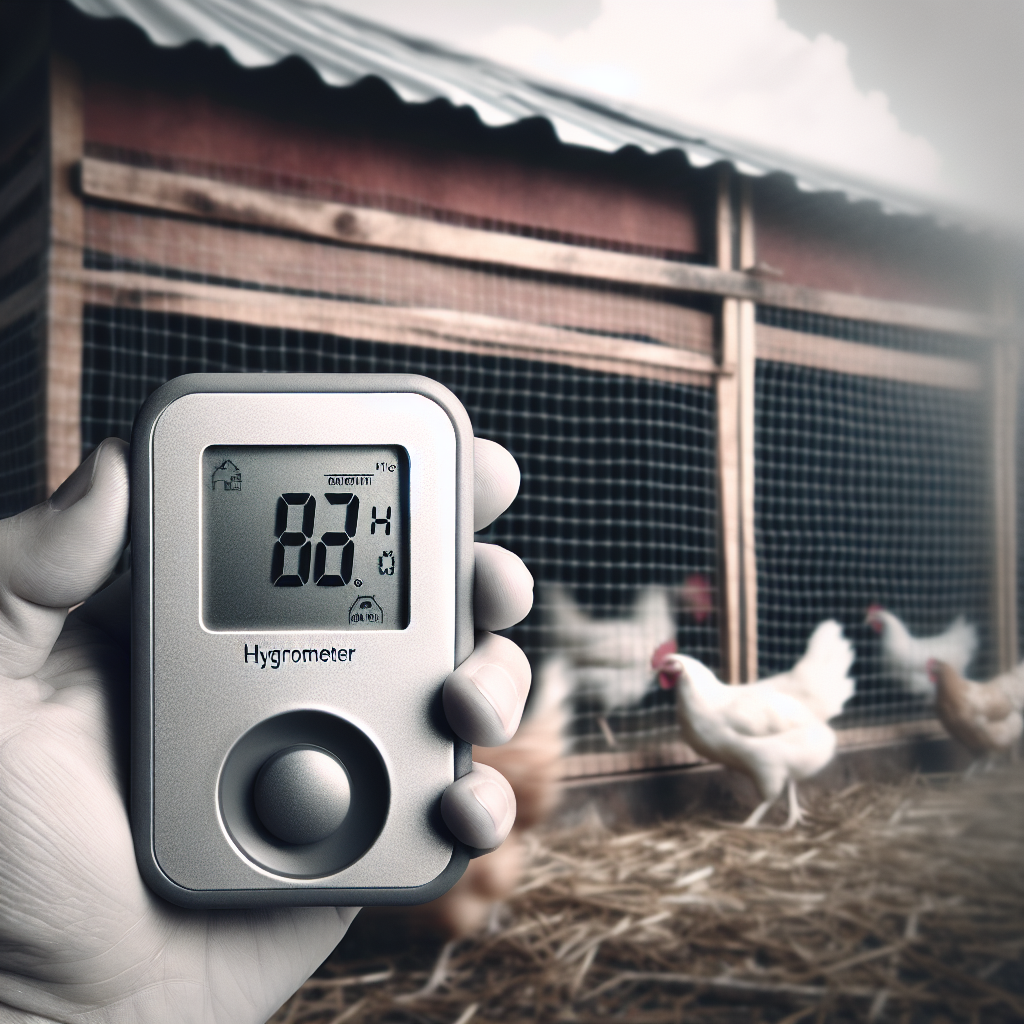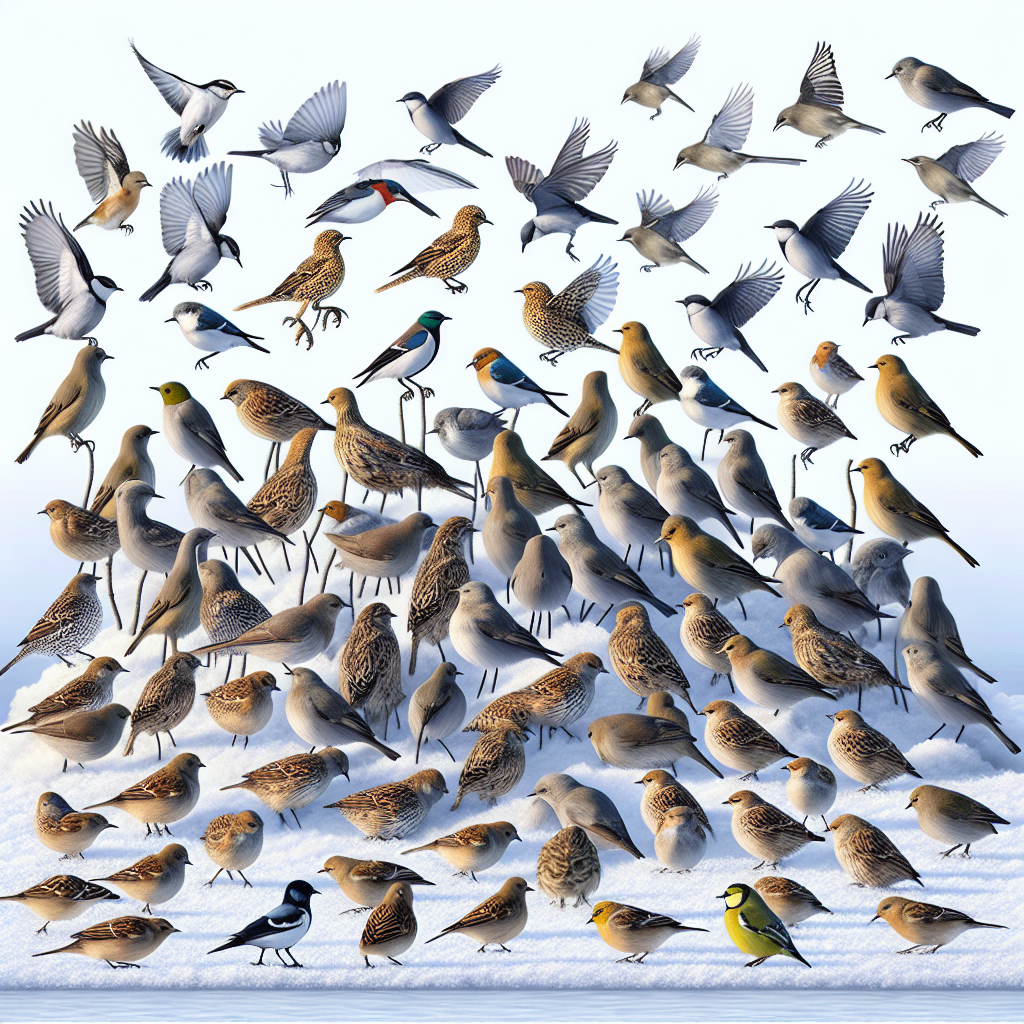If you’re a chicken owner, you know how important it is to keep your feathered friends safe and healthy, especially during harsh winter months. But in case of extreme winter conditions, it’s crucial to be prepared for any emergency situation that may arise. From providing adequate shelter to ensuring a source of warmth, this article will guide you on the essential preparations you need to make to protect your chickens during the coldest times of the year. So, let’s dive in and learn how to keep those clucking buddies cozy and content, even in the harshest winter weather.
Winterizing the coop
During extreme winter conditions, it is crucial to take extra precautions to ensure the safety and well-being of your chickens. The first step in preparing for winter is insulating the walls and roof of your coop. This insulation will help to maintain a stable and warm temperature inside the coop, protecting your chickens from the harsh cold. You can use materials such as foam boards or fiberglass insulation to achieve effective insulation.
Sealing any gaps or drafts in the coop is equally important. Even the smallest openings can lead to significant heat loss and create uncomfortable drafts for your chickens. Inspect the coop thoroughly and use caulking or weatherstripping to seal any gaps or cracks in the walls, windows, doors, or roof. By eliminating these drafts, you can provide a cozy and safe environment for your chickens.
Adding extra bedding to the coop is another effective way to insulate it during winter. Straw or wood shavings make excellent bedding materials as they provide insulation. Spread a thick layer of bedding on the floor, ensuring that it remains dry and does not become damp. This extra bedding will help to keep your chickens warm and comfortable throughout the winter season.
Providing heat sources
In addition to insulating the coop, providing heat sources is essential to keep your chickens warm during extreme winter conditions. Heat lamps or bulbs can be used to generate heat within the coop. Hang the heat lamps or bulbs at a safe distance from any combustible materials, ensuring that they are securely mounted to avoid any accidents. A reliable option is to use heat lamps with adjustable height settings, allowing you to adjust the temperature as needed.
Another option to keep your chickens warm is by installing heated perches or pads in the coop. These devices provide a warm surface for your chickens to roost on, preventing their feet from becoming cold or frostbitten. Heated perches or pads are usually made of durable materials that can withstand the elements and provide a comfortable perch for your chickens.
Using heated waterers is crucial to prevent your chickens’ water from freezing during winter. Dehydration can be a significant issue for chickens in cold weather, and providing them with access to unfrozen water is vital. Heated waterers can be plugged into a power source and regulate the temperature of the water, ensuring that your chickens have access to fresh and liquid water at all times.
Ensuring proper ventilation
While it may seem counterintuitive, proper ventilation is essential in a chicken coop, even during winter. Ventilation helps to prevent condensation and moisture buildup, which can lead to respiratory issues for your chickens. However, it is crucial to strike the right balance between ventilation and drafts. You want to provide fresh air without subjecting your chickens to cold drafts.
One way to ensure proper ventilation is by installing windows or vents with adjustable covers. This allows you to control the airflow and adjust it according to the weather conditions. Opening the covers during the day when it is less windy and closing them at night when it is colder can help maintain a comfortable and healthy environment for your chickens.
Stocking up on supplies
Being prepared with the necessary supplies is crucial during the winter season. Stocking up on extra feed and water is essential in case of any disruptions or difficulty accessing supplies during severe weather. Ensure that you have enough feed to last through the winter months and store it in a dry and secure area to prevent spoilage.
Having emergency lighting and heating equipment is also important in case of power outages or other emergencies. Keep a stash of flashlights, batteries, and lanterns to ensure that you can provide adequate lighting in the coop during dark and cold times. Additionally, having extra heating equipment, such as heated blankets or warming pads, can help provide temporary warmth for your chickens in case of emergencies.
Always have a well-stocked first aid kit specifically for your chickens. Include items such as wound ointment, bandages, and a thermometer to monitor their health during extreme winter conditions. Being prepared with a first aid kit can help you address any minor injuries or illnesses quickly and effectively, ensuring the well-being of your chickens.
Protecting the outdoor space
In addition to winterizing the coop, it is essential to take steps to protect the outdoor space where your chickens roam. Covering the chicken run or outdoor area with a tarp or plastic sheet can provide some protection from the elements. It will help to shield your chickens from strong winds, rain, and snow, keeping them dry and reducing the risk of frostbite.
Clearing snow and ice from pathways is crucial to ensure easy movement for your chickens. Snow and ice can create slippery surfaces, making it difficult for your chickens to walk or roost safely. Regularly shovel or use a snow blower to clear paths and the area around the coop, allowing your chickens to navigate without any issues.
Providing protection from wind and predators is essential for your chickens’ safety during extreme winter conditions. Install windbreakers or barriers around the chicken coop and run to shield your chickens from strong winds. Additionally, ensure that all doors, windows, and fences are secure and in good condition to deter predators from entering the coop.
Monitoring health and behavior
Throughout the winter season, it is vital to regularly monitor your chickens’ health and behavior. Check for any signs of frostbite, especially on their combs, wattles, and toes. Frostbite appears as pale, discolored, or blackened skin and can cause pain and tissue damage. If you notice any signs of frostbite, seek veterinary assistance immediately.
Observe changes in behavior or appetite in your chickens. Extreme cold can affect their eating patterns and overall behavior. If you notice a significant decrease in appetite or any unusual behavior, it could indicate that your chickens are not coping well with the cold. Provide them with extra care and monitor their well-being closely.
Ensuring access to fresh water is crucial for your chickens’ health during winter. Check their waterers regularly to ensure they do not freeze. Provide fresh and unfrozen water multiple times a day. If necessary, use heated waterers to prevent water from freezing, ensuring that your chickens remain adequately hydrated.
Creating a backup power plan
In the event of a power outage, it is essential to have a backup power plan in place to ensure that your chickens’ needs are still met. Investing in a generator or alternative power source can provide temporary electricity to keep essential equipment, such as heat lamps or water heaters, running. Make sure to follow the manufacturer’s guidelines and prioritize safety when using generators.
Keeping spare batteries for essential equipment is also important. Flashlights, lanterns, and other emergency lighting devices require batteries to function. Having extra batteries readily available ensures that you can provide adequate lighting for your chickens during power outages.
Plan for power outages by having a contingency plan in place. This can include having extra blankets or insulation materials that can be used to provide temporary warmth for your chickens. Consider alternative heat sources, such as heating pads or even warm water bottles, to keep them warm in case of extended power outages.
Preparing for emergencies
Along with extreme winter conditions, it is crucial to be prepared for other emergencies that may arise. Having an evacuation plan in case of a fire or other hazards is essential for the safety of your chickens. Identify safe areas where you can temporarily relocate your chickens if needed, and ensure that all members of your household are aware of the plan.
Keeping contact information for veterinarians or poultry experts handy is important. In case of any health issues or emergencies, being able to reach out to a professional can save valuable time and potentially save your chickens’ lives. Keep their phone numbers or email addresses in a readily accessible location.
Educating yourself on emergency procedures for chicken care is highly recommended. Take the time to learn about common emergencies that chickens may face in extreme winter conditions and how to address them. Understanding proper procedures for administering first aid or dealing with other emergencies will give you the knowledge and confidence to handle any situation that may arise.
Insulating water sources
To prevent your chickens’ water from freezing, it is crucial to insulate their water sources properly. Using insulated water containers is one option. These containers are designed to keep water from freezing by providing an additional layer of insulation. Invest in high-quality insulated containers that are durable and can withstand freezing temperatures.
Another method of insulating water sources is by wrapping pipes or waterers with insulation. Insulation sleeves or foam pipe wraps can help prevent freezing by providing insulation to the water lines. Ensure that the insulation is secure and does not have any gaps where cold air can seep through.
Installing heated waterers is also an effective solution to keep your chickens’ water from freezing. Heated waterers are equipped with heating elements that keep the water at a temperature above freezing. These waterers are a reliable option to ensure that your chickens always have access to liquid water, even in the coldest of temperatures.
Adjusting feeding and watering schedules
During extreme winter conditions, it is beneficial to adjust your chickens’ feeding and watering schedules to accommodate for the cold weather. Offering warm meals or treats in the morning can help provide extra calories to keep your chickens warm throughout the day. You can provide warm oatmeal, cooked vegetables, or even warm water with a splash of apple cider vinegar as a treat.
Providing fresh water multiple times a day is crucial. As water tends to freeze quickly in cold temperatures, ensuring that your chickens have access to unfrozen water regularly is essential for their hydration and overall health. Make it a habit to check their waterers and replace any frozen water with fresh, liquid water.
Monitor your chickens’ feed consumption during winter. The cold weather may affect their appetite, and it is important to ensure that they are eating enough to maintain their energy levels and body heat. If you notice a decline in feed consumption, consider providing warm and nutritious meals to entice them to eat.
By following these comprehensive steps and taking the necessary precautions, you can ensure that your chickens are well-prepared to face extreme winter conditions. Remember, their safety and well-being should always be a top priority, and with proper winterizing strategies in place, you can provide a comfortable and secure environment for your flock during the coldest months of the year.




